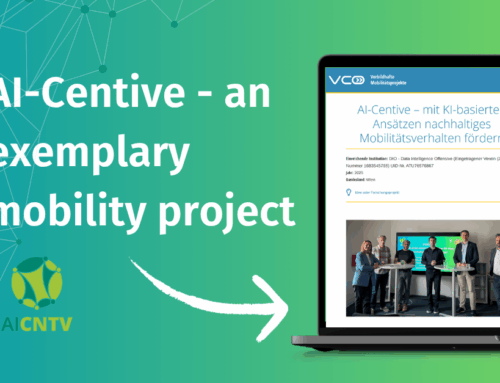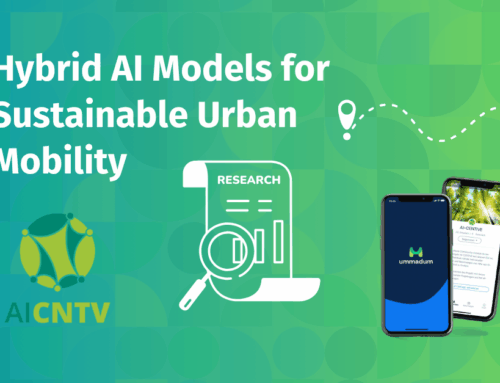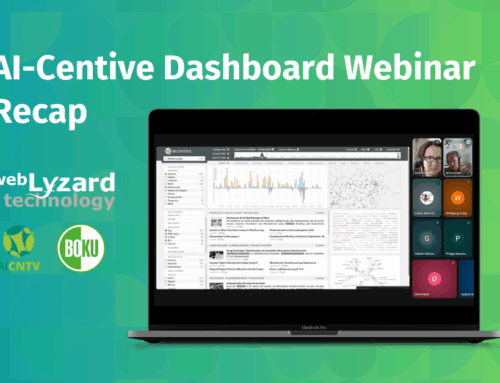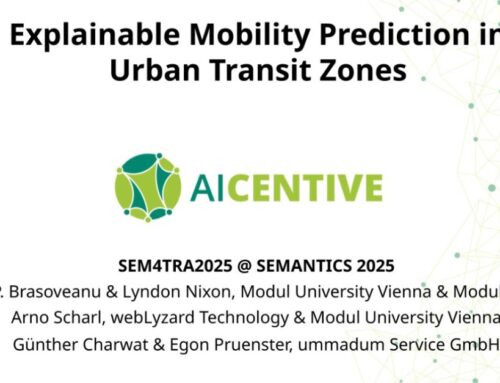AI-CENTIVE is not just about understanding mobility—it’s about using cutting-edge AI to predict it. By providing real-time incentives, AI-CENTIVE encourages citizens to choose sustainable mobility options over traditional car usage. One key example is when large events are happening that affect local traffic. During such events, leaving the car at home and opting for shared transportation (like ridesharing, public transport) or flexible mobility options (like cycling or scooters) can make a huge difference. Identifying these events in advance, and understanding which areas they impact, is crucial.
This is where the Web dashboard of AI-CENTIVE comes into play. It’s designed to track and analyze the effects of major events on mobility across Austria. We demonstrate its usage with respect to two concerts which are attracting large numbers of visitors to Vienna. Firstly, there were the planned Taylor Swift concerts which were cancelled but led alternatively to large groups meeting in various locations in the city. Then there is the series of concerts by Coldplay planned for 21-25 August in the Ernst Happel Stadium. These events provide us with an opportunity to showcase how the dashboard uses “Web intelligence”—analyzing news articles and online content—to reveal key insights into mobility patterns, both for past and future events.
The Taylor Swift Phenomenon: Predicting Mobility Hotspots
The Taylor Swift concerts, initially scheduled for 8-10 August, drew a lot of attention—even after they were cancelled. Despite the cancellation, Swift fans (known as “Swifties”) still flocked to Vienna between 7-11 August. So what happened? The dashboard picked up on online mentions of both “Swift” and “Swifties,” with the top story referencing the Corneliusgasse in connection to Taylor Swift’s song “Cornelia Street.” Fans gathered at this small street in the sixth district, making it an unexpected hotspot.
But that wasn’t the only place. The dashboard’s geo-visualization highlighted Stephansplatz, where thousands of Swifties congregated to sing Taylor Swift songs in the evenings.
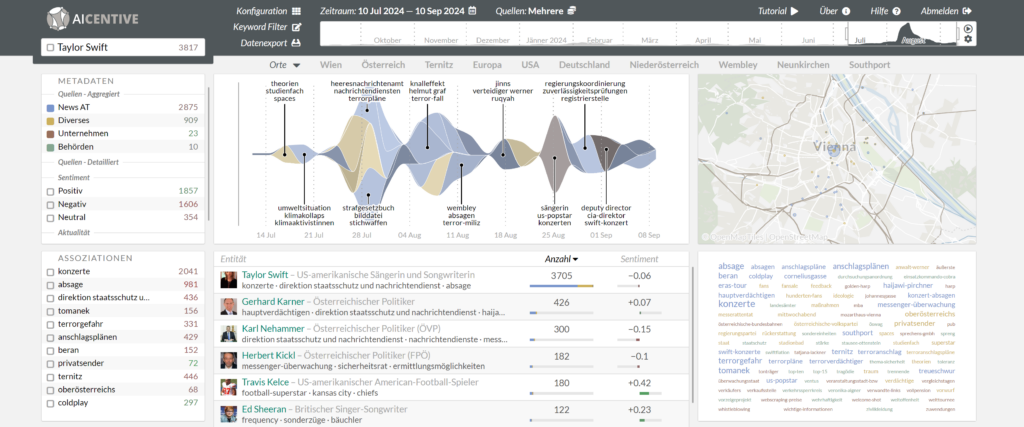
This analysis over past news shows how key locations for events that have occurred can be identified. Instead of the Ernst Happel Stadium (as would have been expected if we had been looking into the future), we see that it was Stephansplatz and (perhaps the least expected) a short street in the sixth district called Corneliusgasse which are mentioned the most. Indeed, we can validate this data from the dashboard as correct, knowing that indeed these were the two most popular locations in Vienna for Swifties to gather over the weekend of the (cancelled) concerts.
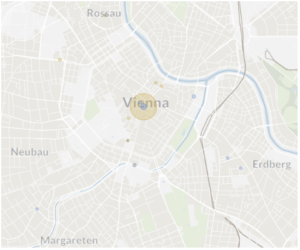
Vienna geo-visualisation with a concentration of news articles mentioning Stephansplatz
From Analysis to Prediction: Looking Ahead to Coldplay
Having shown how the data analysis and visualisations by the dashboard can correctly highlight locations that are affected by mobility-relevant events, we can make use of the predictive mode to identify and make similar mobility-related predictions for future events. Using the dashboard’s predictive mode, we analyzed news articles in Austria between 20-26 August to anticipate the impacts of the Coldplay concerts scheduled for 21-25 August at the Ernst Happel Stadium.
What did we find? The “storygraph” visualization in the dashboard revealed multiple mentions of both the Coldplay concerts and another event—the “Oper im Steinbruch St. Margarethen.” By filtering the results to focus solely on Coldplay, the data clearly linked the concerts to the stadium across the 21-25 August timeframe.
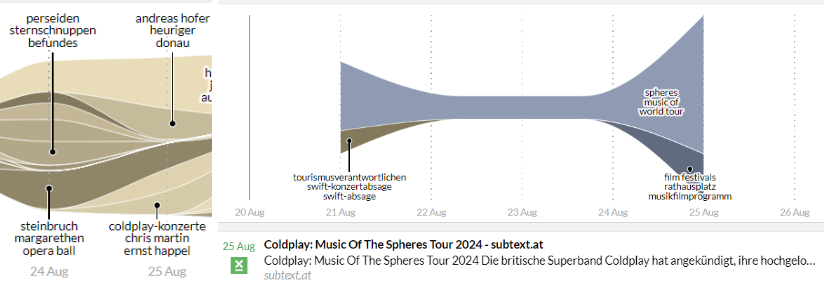
(left) Predictions for 24-25 Aug in the storygraph visualisation with Steinbruch opera and the Coldplay concerts. (right) Coldplay concerts cover the period 21-25 Aug (note that 20 and 26 Aug are empty).
Looking again at locations associated with the event in the online documents, Ernst Happel Stadium stands out as being mentioned in almost every matching document. Therefore we could automatically extract this data via the dashboard that this is the primary location for the Coldplay concerts. From the geo visualisation we find also a reference to Ludwig Koessler Platz, and it turns out a bus which runs from there will be diverted for the concerts so we have found another mobility-relevant association.
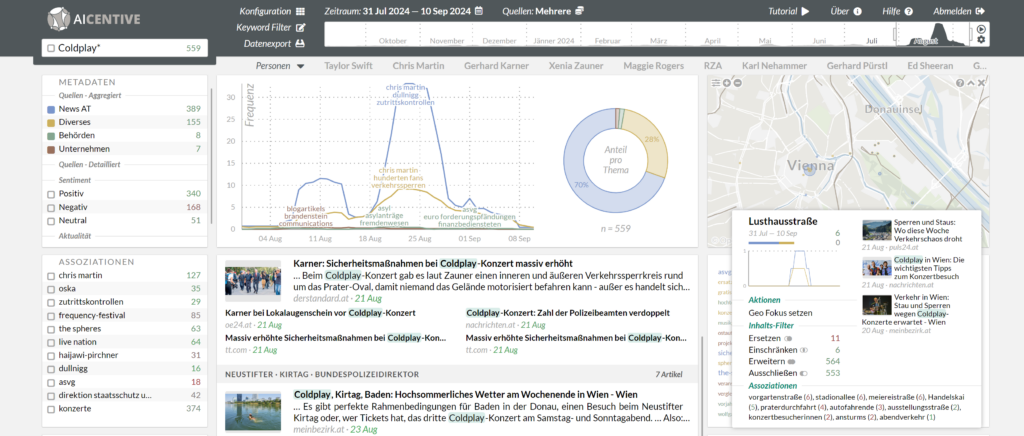
Learning from the Unexpected
The Taylor Swift case shows us that not everything goes according to plan. Even cancelled events can still impact local mobility, highlighting the importance of being prepared for the unexpected. AI-CENTIVE’s dashboard provides stakeholders with the tools to anticipate these impacts and offer timely incentives to encourage more sustainable transportation choices, which ultimately help reduce CO2 emissions.
In just six months, AI-CENTIVE has already helped save over 100,000 kg of CO2—and this is just the beginning. With innovations like event-based mobility predictions, we aim to achieve even greater savings in the future.
More information about AI-CENTIVE
For more information about the dashboard, contact Arno Scharl from webLyzard.

